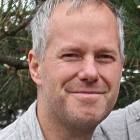Thank you for helping us meet our fundraising goal!
“If we don’t move now, it will be a disaster. We are dealing with the survival of our species… We must stop the burning of fossil fuels.”
Words from a doomer, right? Probably some radical environmentalist working to undermine Alberta’s rightful place in the economic system.
The words come from Lucien Bouchard. Canada’s Conservative environment minister under Brian Mulroney. Spoken in 1989. Thirty-five years ago. Words we elected to ignore, as a country and as a species.
And so now we find ourselves staring into a very worrisome future. The last 12 months of this planet’s existence have been its warmest in recorded history, much worse than forecasted by the climate scientists and infinitely worse than that predicted by the climate denialists.
And the news, driven by the weather, reflects ominously on where we are headed: droughts, floods, hurricanes, food insecurity, heat waves and, let’s be honest, possible civilizational and planetary collapse.
Big words. Scary words. But maybe we need to start saying them out loud because we aren’t acting as if they are not only possible but inevitable should we keep failing as we have now for so long. Indeed, it seems we were more accepting of reality 35 years ago than we are today.
Despite all the signs that we need to be doing more, faster, the current political conversation around climate is to do much less. Remove the carbon tax, eliminate the clean electricity standard, with the replacement being essentially magical thinking. Technology that doesn’t yet exist. And continue the status quo for as long as possible.
The resistance is coming loudest from those seeped in the culture of fossil fuels, of course. Those with the most to lose (financially) from a rapid transition to safer sources of energy supply — $1,000,000,000,000 (that’s $1 trillion) by one estimate. And in a world that values money more than safety and power more than a future, it is obvious they are winning.
Winning is like a game to them. First hide, then deny, then attack solutions, then make promises, then go back on those promises.
Pledging to go net zero. Investing in renewables. Being a part of the transition. But after Russia’s invasion of the sovereign nation of Ukraine sent oil prices sky-high, there was a shift back to drill, baby, drill attitude. Climate-friendly initiatives have to come with massive subsidies from the government. Technologies like carbon capture and storage or small modular nuclear reactors have never been proven at scale.
An economic, political game has winners and losers. But a failure at climate mitigation only has losers. Even the petro-state politicians and billionaires lose if there is no civilization to enjoy, no food to eat. Pure deadly blind madness.
Even among those who care about climate, there is a reticence to call a spade a spade. Saying that everything we hold dear is threatened is deemed “bad climate communications,” that we need to preach climate hope rather than the reality that faces us. But now our back is up against the wall. We’ve run out of time. Climate hope hasn’t yet motivated us to do the right thing. Perhaps realism (not doomism) will.
This is a call for our politicians, media, scientists and yes, even our oilmen, to acknowledge the truth and to tell it like it is. Stating unequivocally that unless we all act together, rapidly, radically, to transform our energy systems to safer society, the game is lost for all.
Glossing over the truth simply won’t create the motivation to act with the urgency required. Nobody is going to forgo that tropical vacation or buy a more efficient, smaller car just ’cuz, but we might if we know our children’s (and our own) future is threatened. The same goes for government policy and corporate decisions.
Another summer is approaching. We need both the status quo and the doom to lose. The planet is going to continue to signal to us that we are at the brink.
Let’s listen, act rationally and give humanity, and every other living thing on Earth, a chance.
Joe Vipond is an emergency physician in Calgary, the past-president of the Canadian Association of Physicians for the Environment and the co-founder of the Calgary Climate Hub.
Steve Bentley is the Calgary Climate Hub’s digital content and partnerships co-ordinator and host of the Climate Lens podcast.







Comments
It's important to make these points. Well done!